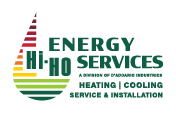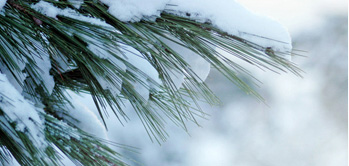Conservation Tips
Did you know that the average American home wastes 58% of its energy?
Increasing the efficiency of your heating system is the most effective way to save money and reduce your home’s carbon footprint.
Hi-Ho Energy Services wants you to realize savings on your fuel bills – and to help do your part in conservation, which remains the quickest, cheapest, cleanest way to extend our world’s energy supplies. Working together, we can make a difference!
Cold weather conservation
- Lower your thermostat to 68º for eight hours each day, and you’ll save up to 10% on energy costs. For every additional degree you lower it, you’ll.save about another 3% on your bill.
- Change your furnace filter each month.
- Keep baseboards and vents clear of rugs and furniture.
- Weatherize your windows for all moveable joints, and caulk all non-moving parts. You can also use a window kit to insulate the inside of your windows to keep cold air out and warm air in.
- Reverse the direction of your ceiling fans so they move warm air down.
Warm weather conservation
- Don’t use your stove, oven, dishwasher or dryer when the weather is warmest. Otherwise, your air conditioning system will have to work it’s hardest to keep your home cool.
- Only run your dishwasher when it is full. A dishwasher adds humidity to the air, and your air conditioning system will need to work harder to cool the room temperature. So the fewer times you use it, the easier it will be on you’re A/C system.
- Clean the coils on your outdoor cooling system whenever dirt is visible. Clean your evaporator coil and condensate pan every year, as well as the blower fan blades.
- Clean your supply and return registers and straighten their fins.
- Plant shade trees around your outdoor A/C unit. When sitting in direct sunlight, it can use significantly more energy to cool your home.
- Installing and using ceiling fans along with air conditioners will help you feel cool while allowing you to keep your thermostat set higher. Typically ceiling fans use less energy than air conditioners.
Year-round conservation
- Your third-highest energy expense is likely heating water. Turn your water heater down to 130º and you’ll save a few dollars each month.
- Microwave ovens use about half the energy of a conventional oven.
- Wash your clothes in cold water instead of hot water, and you can save nearly $50 each year.
- Put a large, dry bath towel in the dryer with each load of wet clothes. The towel will absorb dampness and reduce drying time up to 33%.
- Inspect crawl spaces to ensure the inside insulation is dry. If damp, repair the source of moisture and replace any damaged insulation. (The effectiveness of damp insulation is significantly reduced.)
- Vacuum your refrigerator’s coils each year, as dirty coils cause it to work harder, which requires more energy.
- Close fireplace dampers unless it’s in use, so inside air won’t escape.
- Install double-pane windows with a low-emissive glass coating to reduce heating bills up to 34% in cold climates, when compared to more ordinary uncoated, single-pane windows.
- Plant evergreen trees on the north side of your home and leafy trees on the south side to help block winter winds and summer sun.
- Insulate your attic to save 20%-35% on heating costs and up to 35% on air conditioning costs.
- Install flow-restricting shower heads to reduce hot water use up to 50% without affecting water pressure.
- Leave storm windows on year-round to provide insulation and enjoy substantial fuel savings.
- Close drapes or blinds more often during the summer to reduce indoor heat; open during winter to increase indoor heat.
- Use all ventilating fans wisely; they can pull out a house full of warmed or cool air in an hour. Be sure to turn ventilating fans off as soon as they’ve done their job.


